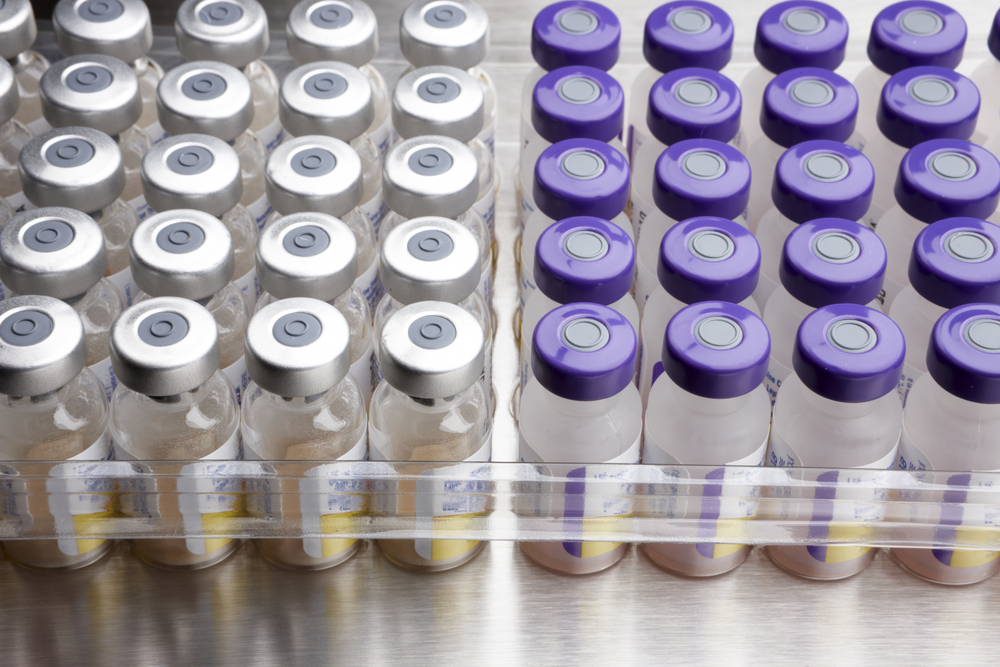NHF, HFA Seek Additional Explanations From Bayer on Mislabeled Kogenate Recall

The National Hemophilia Foundation (NHF) and Hemophilia Federation of America (HFA) asked Bayer to clarify the risks to the hemophilia community, and the potential effects, of the recent voluntary recall of two defective lots of Kogenate FS anti-hemophilic factor.
In a letter sent to Paul Bedard, vice president and general manager of hematology and neurology at Bayer, the two U.S. nonprofit organizations expressed their emerging concerns, and questioned the company as to the most recent updates on the recall.
“We appreciate the opportunity to work with the hemophilia community leadership to improve how we address these matters and to ensure timely and transparent communication,” Bedard said in a response letter. “As new information becomes available, we are committed to providing updates on the recall and related topics.”
In the past month, Bayer announced that a total of 986 distributed vials of Kogenate FS — now identified as lots #27118RK and #27119CG — had been incorrectly labeled, and instead contained its Jivi product.
Both Kogenate (BAY14-2222) and Jivi (BAY 94-9027) are factor VIII replacement therapies that have been approved for the prophylactic — or preventive — and on-demand treatment of people with hemophilia A.
Both medications work by providing the clotting factor VIII that patients with hemophilia A are missing, and need in order to avoid spontaneous bleeding episodes. However, the formulation of the two medicines is not exactly the same. In addition, Kogenate is approved for the treatment of adults and children, while Jivi is approved for previously treated adults and adolescents, ages 12 and older, with hemophilia A.
Given this particularly important difference, NHF and HFA expressed their concerns on whether the mislabeled Kogenate had been distributed to anyone younger than 12. Bayer said, in the letter, that it had “no information that any patient under the age of 12 received the recalled product.”
“Currently we are working with our distribution partners to capture information on patients who received product from the recalled lots,” Bedard said.
In its attempts to ensure that all defective vials are collected, Bayer notified each of its 54 distribution partners, providing them with instructions on what to do with the affected product. Specifically, they were asked to immediately quarantine their affected inventory, and notify their patients and customers of the recall. Bayer issued guidelines to its distributors for providing new product to all those who received the recalled medication, and for working with Inmar, the recall vendor coordinating returns, to get back all of the incorrect product to Bayer.
In addition to this effort, and to ensure that all recalled vials are effectively collected, Bayer also reached out to the hemophilia community. The company has asked affected those affected to contact their physicians or Bayer Medical Communications at 1-888- 84BAYER (888-842-2937).
As a precaution, and to make sure that patients do not have any health problems associated with the Kogenate FS mislabel, Bayer also contacted more than 2,800 healthcare providers. The company’s outreach was designed “to notify them of the recall, necessary next steps, and potential medical implications.” Bayer also contacted 400 health care professionals and a number of patient organizations and advocates.
To date, no safety issue due to the affected lots has been reported to Bayer. Still, the company is conducting a thorough review of all adverse events described in new reports. All collected information will be reported to the U.S. Food and Drug Administration, according to regulatory requirements.
“Bayer will continue to monitor and assess all incoming adverse event reports associated with this recall,” Bedard said.
NHF and HFA also noted that, while the last manufactured date of the defective lots was July 15, the recall only happened four days later, on July 19. Despite this delay, Bedard ensured that the company followed all the necessary policy and regulation protocols approved by the FDA for such situations.
However, to expedite the process and reduce potential risks in a future situation, Bayer is going to incorporate Patient Notification System instructions into the company’s procedures. Bayer said this would shorten the time need for all communications.






